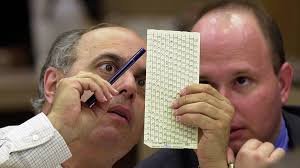New Election Laws Spark Controversy: What You Need to Know

New Election Laws Spark Controversy: What You Need to Know
In recent months, several U.S. states have introduced new election laws aimed at reforming how elections are conducted. While proponents argue that these changes will ensure electoral integrity and prevent voter fraud, critics claim they will disproportionately affect marginalized communities and suppress voter turnout. The new laws have sparked widespread controversy, with debates focusing on their impact on voter accessibility, transparency, and fairness.
At the heart of the controversy is a wave of restrictive measures that have been passed in states like Georgia, Texas, and Florida. These laws typically focus on a variety of areas, such as voter identification requirements, mail-in voting procedures, and early voting hours. For example, Georgia's new election law includes stricter voter ID requirements for absentee ballots, limitations on the use of drop boxes, and restrictions on food and water distribution to voters waiting in line. Critics argue that these changes will disproportionately impact minority voters, the elderly, and low-income communities who are less likely to have access to a government-issued ID or the ability to vote in person during regular business hours.
Supporters of these laws argue that the changes are necessary to restore public confidence in the election process and prevent voter fraud. They point to claims of irregularities in the 2020 election and emphasize the need for tighter security measures to protect the integrity of future elections. However, critics point out that voter fraud in the U.S. has been exceedingly rare, and the new laws appear to target vulnerable populations rather than addressing actual instances of fraud.
One of the most contentious aspects of these new laws is their impact on mail-in voting. During the 2020 election, the COVID-19 pandemic led to a surge in the use of absentee ballots, which were seen as a safer option for many voters. However, several states, including Texas and Georgia, have now passed laws that restrict the circumstances under which voters can request absentee ballots and impose stricter identification requirements for those who do vote by mail. These measures have raised concerns that they could disenfranchise many voters, particularly those who have historically relied on absentee voting, such as military personnel, people with disabilities, and older adults.
Another key element of the debate is the restriction of early voting hours. Some states, like Georgia, have reduced the number of days and hours available for early voting, which could have significant implications for working-class voters who may find it difficult to take time off during traditional voting hours. The changes have also sparked concerns about the impact on communities with high populations of Black and Latino voters, who historically vote early in higher numbers compared to other demographic groups.
The controversy surrounding these new election laws has also fueled a larger national conversation about voter rights and election security. Voting rights advocates argue that the laws are an attempt to roll back gains made in the 1960s during the Civil Rights Movement, and they have pushed for federal legislation to safeguard the right to vote. The For the People Act, a sweeping reform bill introduced in Congress, would expand voting access by eliminating restrictive voter ID laws, expanding early voting, and making it easier to vote by mail. However, the bill has faced significant opposition from Republicans, who argue that it represents a federal overreach and undermines states' rights to regulate elections.
In response to these new laws, many activists, civil rights organizations, and corporate leaders have raised their voices in opposition, calling for a boycott of states that have passed restrictive voting laws. Protests and legal challenges are ongoing, with some cases working their way through the courts. As the debate continues, the future of U.S. election laws remains uncertain, with both sides presenting strong arguments for the need to balance election security and voter access.